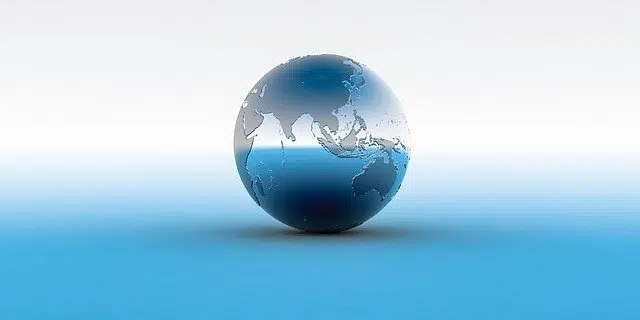
Geoeconomics studies the impact of resources on international position
The notion of geoeconomics is not part of the dictionary of the Royal Spanish Academy ( RAE ). The term can be used to name the discipline focused on the analysis of the geographical, physical and political factors that affect the economy of a region and vice versa.
Part of geopolitics
It is usually indicated that geoeconomics is a subdivision or area of geopolitics , which is dedicated to studying how politics is conditioned by geographical issues. In the case of geoeconomics, it is aimed at examining how economic means or resources can help strengthen the position of a nation in the global context .
Geoeconomics, in short, is linked to the economic policies that allow countries to consolidate their power and project themselves internationally . A government can try to take advantage of the infrastructure offered by the global economy to achieve certain policy objectives, to mention one possibility.
An example of the application of geoeconomics can be found in the history of Germany . The rulers of said European nation opted for the development of the chemical and steel industries to build roads and railways and strengthen their naval forces. This then allowed Germany to gain colonies that it took advantage of for its economy and also on a political level.
Origins
American historian and economist Edward Luttwak is credited with developing the concept of geoeconomics. He was a military strategist born in Romania, raised in Great Britain and later settled in the United States. According to his definition of geoeconomics, it was a way to maintain the rivalry that nations had by using economic means, instead of those of war.
Already in the 1990s, the Frenchman Pascal Lorot made important contributions, beginning with the founding of the journal Geoeconomía . His definition of this concept was the following: the study of economic strategies (especially commercial ones) that States use within the framework of their policies with the aim of protecting their own, achieving mastery of technologies and market segments. markets that are essential to produce and market their products, which can be understood as a source of power or to project their economy internationally.
Transformation of the global economy
Before continuing, it is necessary to briefly define the concept of protectionism , which opposes free trade because it seeks to promote national production to face international competition. To do this, it generates the payment of import taxes and implements measures that favor national producers. Well, by applying these policies, global economic growth occurs at a slower rate.
Taking as a reference the year 2008 and its remembered economic crisis , from then on the evolution of the economy decreased partly due to protectionism, but also due to austerity policies. Another reason is the evident shift in global power. The importance acquired by certain countries that were previously relatively distant from the political framework, such as China, altered the general picture and reversed certain power situations .

This concept originated in the mid-20th century.
It is not economic geography
It is important not to confuse geoeconomics with economic geography . The latter belongs to the field of human geography and focuses on the relationship between economic activity and geographic location. In other words, it studies the economy, from production to consumption, taking into account the place in which it is carried out.
Scholars in this field are interested in the products, but also in the reason for their geographical location, in addition to the characteristics of the processes that surround them, from those of industrial production to those that involve consumers .
